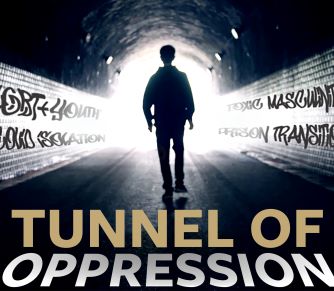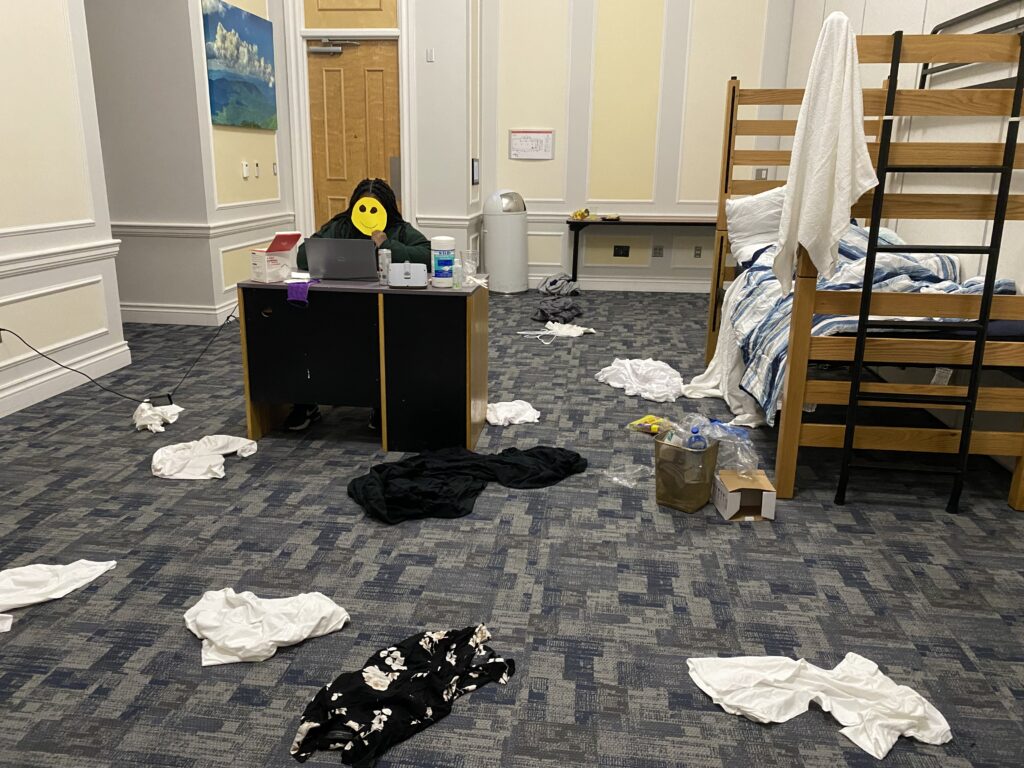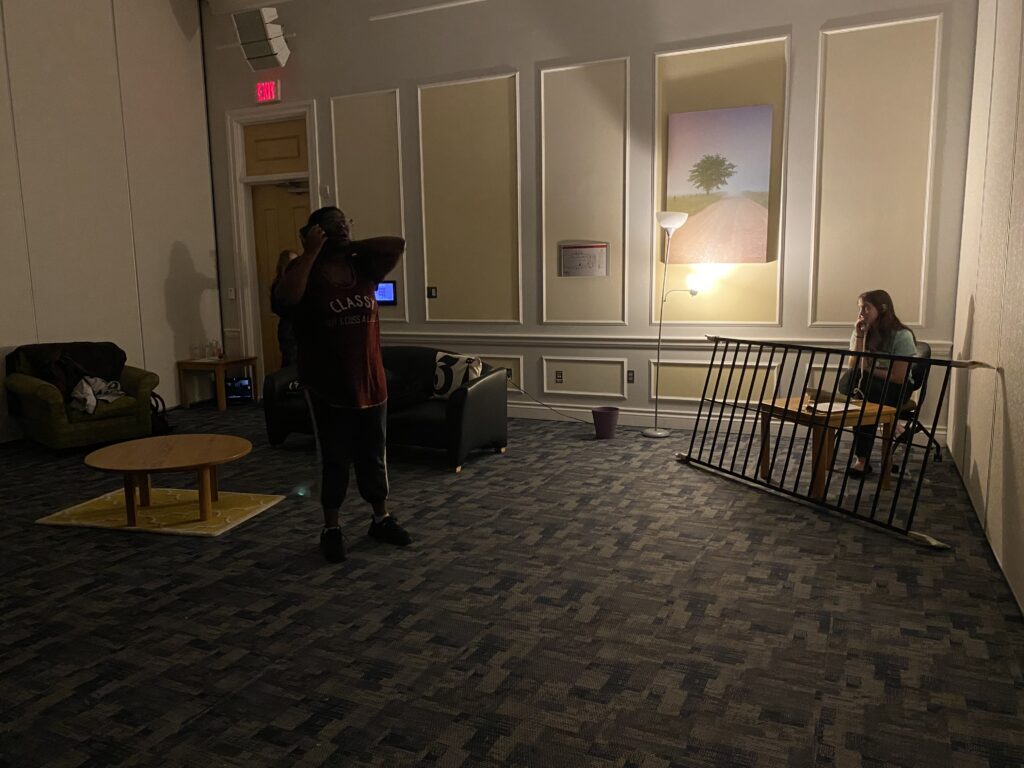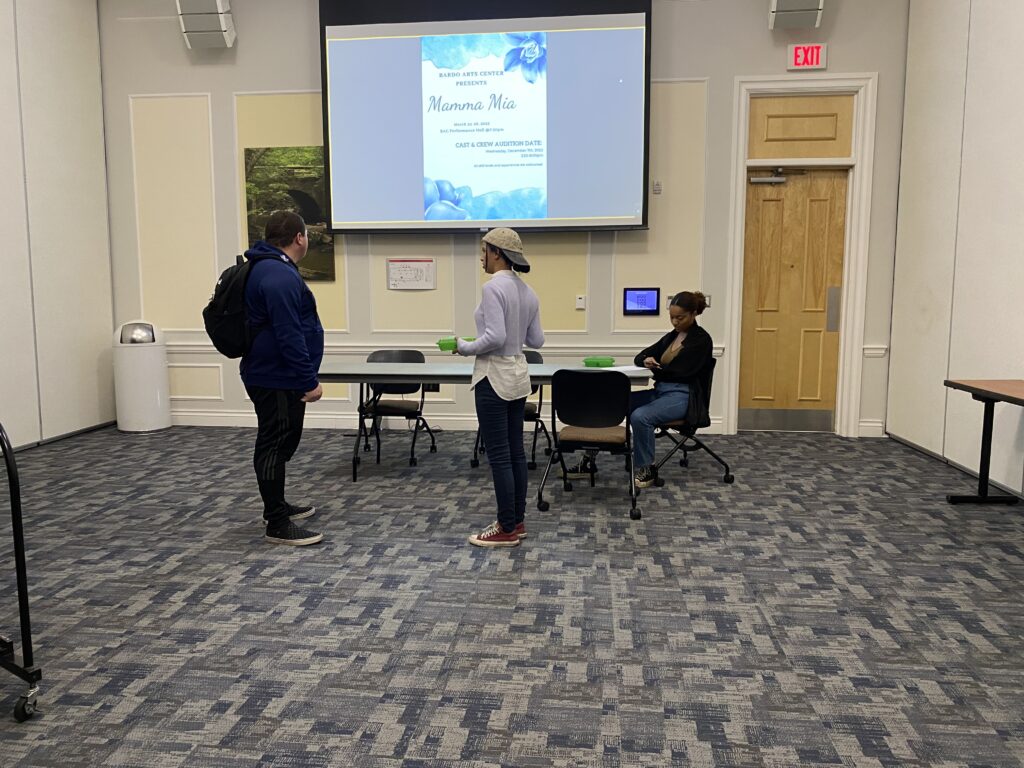
Since 2016, Western Carolina has presented the Tunnel of Oppression yearly. Tunnel of Oppression is an interactive presentation to raise awareness and explore different types of oppression.
The Tunnel of Oppression, hosted by Intercultural Affairs (ICA), presented four different topics of oppression: COVID-19 isolation, reentry (the transition from incarceration to society), toxic masculinity and LGBTQ+ youth.
Evelyn Rucker, interim director of ICA, oversaw the setting up of the tunnel. Topics were nominated and discussed by the ICA council, then finalized by ICA staff. This year they wanted to focus on themes of mental health. To Rucker, the goal of the tunnel “is to educate students in the campus community on perspectives they don’t have access to.”

The first room was COVID-19 isolation. The goal of the room was to simulate what many Americans, especially students, experienced during the mandated lockdown. The room featured one student with a smiling mask attending a zoom class. Their room was messy with clothes on the ground and old food sitting on their desk. The student turned their camera off and removed their mask then was circled by two actors who recited their internal monologue of exhaustion, insecurity and the pressure to pretend to be okay despite feeling hopeless.

The next room showed the transition from prison to society. An ex-prisoner was welcomed home by their friend. Together, the two discussed that not only had the ex-prisoner’s old job closed down but also their friend had passed away and their old forms of communication were now considered outdated. During the conversation, the ex-prisoner received a call from the jail. The call was from an old friend who served prison time with them and shared that they purposely broke the law to go back to jail for shelter and food because they couldn’t find a secure job after their return to their community.

The third room covered toxic masculinity. It showed the cultural and social norms expected of male-identifying people by presenting two men who just finished their soccer practice. They began talking when one noticed an audition sign-up for Mamma Mia, a musical they used to watch with their family. Upon showing interest in signing up, their peer ridiculed them and accused them of being gay, saying “we’re not gonna be friends if you are because I don’t hang around people like that.” Later, a friend came to comfort them. However, when approaching the audition sign-up, he chose not to because of the shame.
The final exhibit covered LGBTQ+ youth and gender identity. The room depicted a party where two friends are enjoying their time when someone joined them. Despite explaining to the new person that one of the party attendants used they/them pronouns, she continued to misgender them by saying “it’s not something I grew up with.” She was confronted by the other friend and apologized.
The Tunnel of Oppression concludes with a “Room of Hope” where students who completed the tour have a discussion about what they just witnessed and how it made them feel with two Counseling and Psychological Service (CAPS) specialists.
Rucker wants students to leave with empathy and passion for advocacy. “When you see someone … pushing forth those stigmas, what does the conversation look like for you to stop it?” She wants people to be inspired to do better while speaking up for themselves and others.
I went through the tunnel and witnessed the ways the tour challenges you to experience the discomfort of these situations as well as change your mental perspective of issues you may or may not have previously witnessed/experienced. The entire experience is enlightening on how powerful silence is when oppression is taking place.
Edith Torres, WCU sophomore, also completed the tunnel and related heavily to the COVID isolation room. “It’s like an unspoken thing we all know we went through, but we don’t talk about.” She went through the tunnel because, as a Hispanic student, she had gone through oppression, but she wanted to educate herself about the oppression others may experience.
The tunnel is a life-altering experience that every year covers different relevant topics. Every student, if they have the time, should participate whether they’ve experienced oppression or not to be comforted in knowing they’re not alone and to educate themselves about how they can help others.


